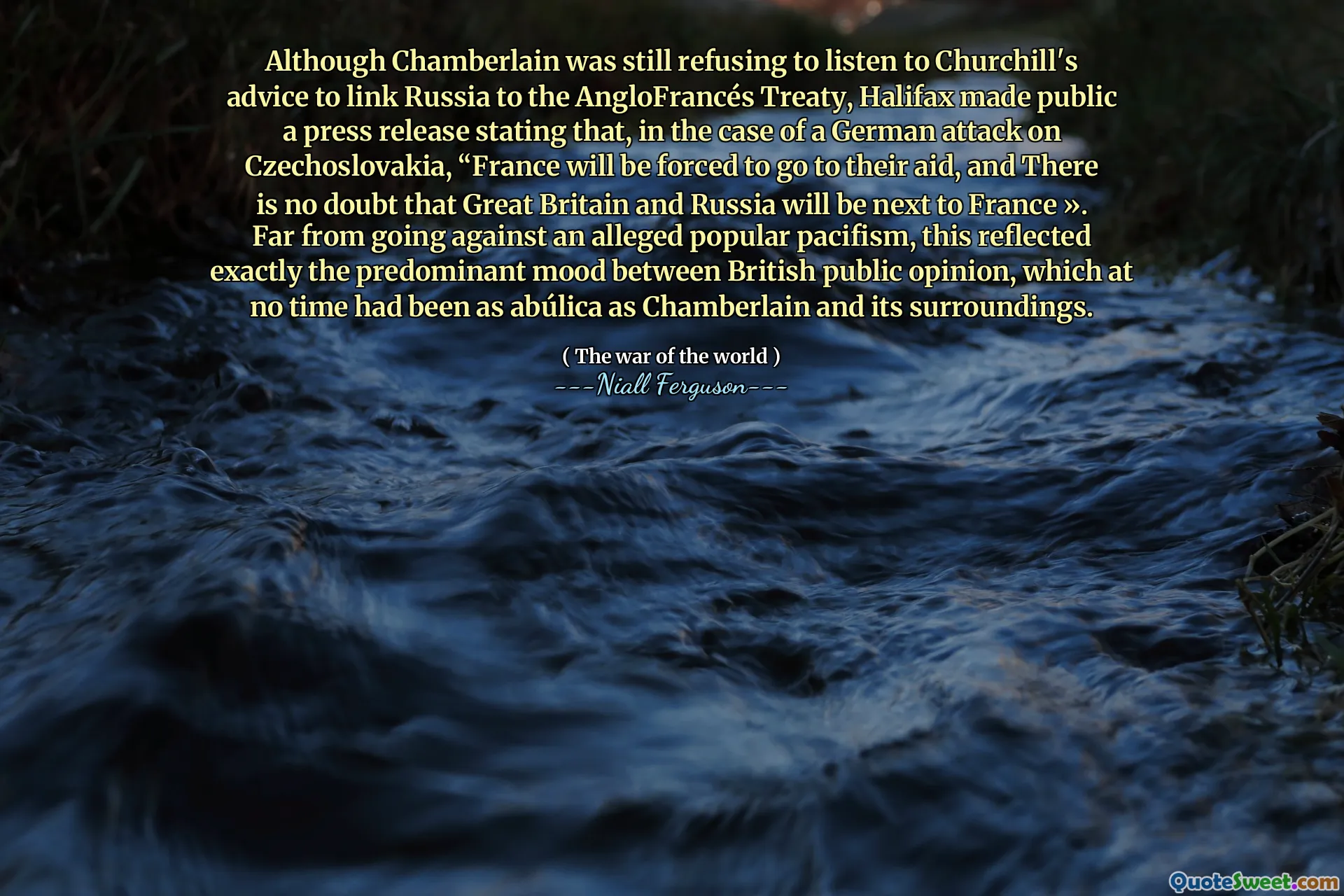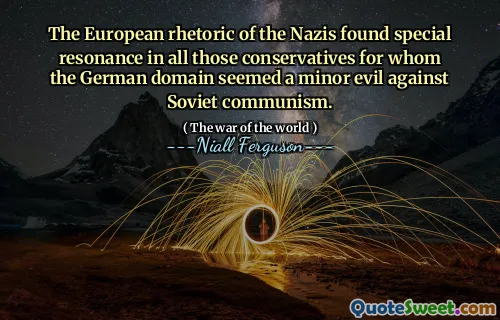
Although Chamberlain was still refusing to listen to Churchill's advice to link Russia to the AngloFrancés Treaty, Halifax made public a press release stating that, in the case of a German attack on Czechoslovakia, “France will be forced to go to their aid, and There is no doubt that Great Britain and Russia will be next to France ». Far from going against an alleged popular pacifism, this reflected exactly the predominant mood between British public opinion, which at no time had been as abúlica as Chamberlain and its surroundings.
Chamberlain was resistant to Churchill's counsel regarding the incorporation of Russia into the Anglo-French Treaty. However, Halifax publicly declared that if Germany were to attack Czechoslovakia, France would be obligated to assist, suggesting that both Great Britain and Russia would follow suit. This statement illustrated a sentiment that diverged from any supposed popular pacifism, highlighting the prevailing attitudes of the British public, which were much more alert and proactive than Chamberlain and his circle.
The public's inclination was not one of apathy; rather, it indicated a readiness to respond to threats. While Chamberlain clung to a more passive approach to foreign policy, the officials like Halifax recognized the urgency and potential consequences of German aggression. The contrasting views between governmental leadership and the public mood underscored the tension in the approach to facing the looming threat of war.







